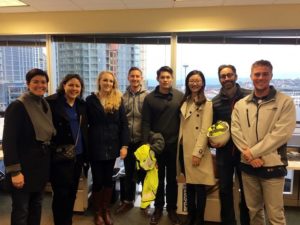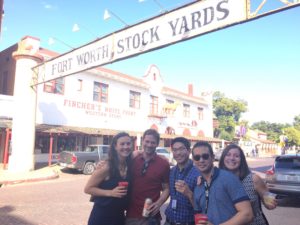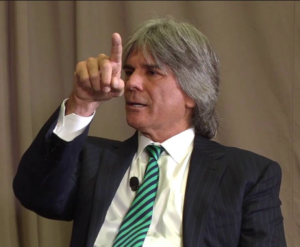MSRE Candidate Eric Jacobs recently attended the ULI Fall Meeting and shares his thoughts/fears on networking, a necessary skill in the world of real estate...
“Networking” has always been a bit of a scary word to me. It conjures up images of awkward conversations, exchanging business cards with strangers and trying to “sell” oneself. Those aren’t situations where I tend to be comfortable. The ULI Fall Meeting promised to be chock full of those sort of interactions so I had a certain amount of trepidation going into the week.
Thankfully, with the help of the MSRE staff and my friends and classmates, I never felt the need to put myself into awkward situations. Instead, I was able to “customize” my networking experience into situations where I felt comfortable and confident in my ability to put the best (and most genuine) version of myself forward.
Starting the week off with a tour worked well as it allowed us to meet people in a relaxed setting, whether watching longhorn steer being herded down a Ft. Worth city street or sampling a variety of Texas whisky at a cool outdoor bar. I made friends in a relaxed setting with natural conversations about who we are, what we did, where we were from and our differences and similarities. As other people from the group were doing the same we were constantly being introduced to new and interesting people.
As the week went on, different events were set up during the day where we met local real estate leaders and essentially got to grill them for helpful information. We could ask as many questions (or as few) as we felt comfortable. It was another great way to get to know contacts who could be a big help now, or down the road.
Finally, our last night in Dallas we headed out to a northwest networking event. Our little crew of Washingtonians piled into a random limo, jumped onstage and sung with a local bar band for a song or two and generally engaged in the sort of good-natured shenanigans that create lifetime bonds.
When I got home I thought about the great time I had before realizing, much to my chagrin, I had been networking the whole time. Oh well. Thank you so much to the staff and sponsors that made this trip possible for all of us!



